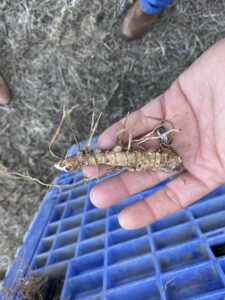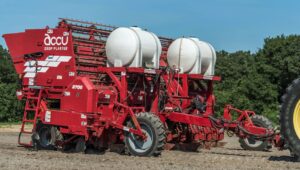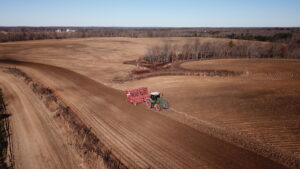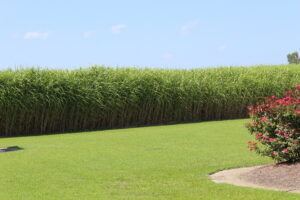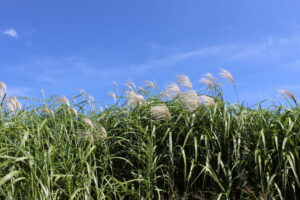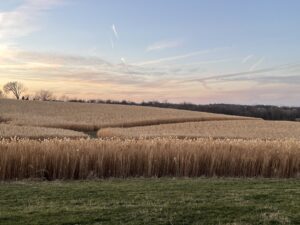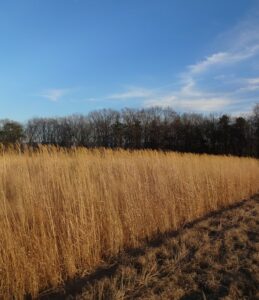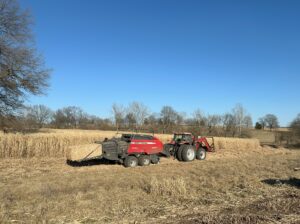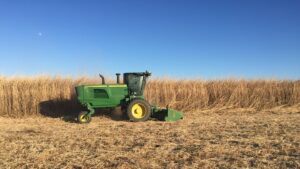The genus Miscanthus, native to tropical, subtropical, and warm temperate regions of Asia, is comprised of approximately 20 different species and was originally introduced to the United States during the nineteenth century, primarily as an ornamental plant. As the genus was studied throughout the world, it stood out for its ability to produce large amounts of biomass, even in marginal soils. Further exploration led to the discovery and improvement of a hybrid species, Miscanthus x giganteus, or giant miscanthus as it is commonly referred to today. Due to the hybridization, giant miscanthus is sterile plant, producing no viable seed. It is this sterile hybrid species, giant miscanthus, that Genera establishes and manages for the production of our fiber pulp. It has been grown in North America and Europe for decades as a high performing biomass crop due to its resiliency to drought, pests, and disease, along with its yield potential of 7-10 dry tons per acre each year.
Giant miscanthus is different than many crops in that it is established by planting segments of an existing plant, called rhizomes. Rhizomes are the larger root segments that exist in the top six to eight inches of soil in an established field. Beyond these larger rhizomes, the plant will send off many smaller roots that have the ability to reach as far below ground as the biomass growing above ground. Much like other perennial grasses, giant miscanthus can be productive with low levels of annual fertilization and management, making it an excellent feedstock for fiber products. Genera manages this crop similarly to switchgrass in that the fields are harvested during the winter following a freeze event. This timing ensures the plant has reached dormancy which allows it to naturally dry standing in the field and triggers the translocation of nutrients back into the root system for winter storage.
Genera is currently partnering with landowners to produce giant miscanthus for use in our fiber products. If you have agricultural land suitable for planting and would like to learn more about this opportunity, please use our interest form to let us know!

